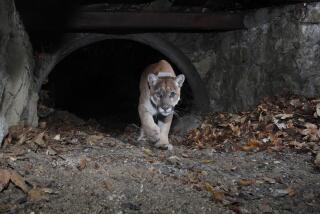L.A.-based musician sows religious unity with the sitar
An eclectic group of people sat on floor cushions in a Los Feliz home earlier this month for a concert to mark famed sitar player Ravi Shankar’s 90th birthday. In the same room where Shankar played in the 1960s sat atheists and believers, guests who were raised Catholic, Jewish, Muslim and evangelical Christian.
They came together at the home of Shankar’s longtime friend Jan Steward to hear Paul Livingstone, a Los Angeles-based virtuoso sitar player who, in the last year, has adapted various world music styles to church worship.
“I’m striving to connect everything I do with something that reflects a devotion to God,” Livingstone said. “To me, music is worship.”
Livingstone, 39, is the resident musician at Throop Church, a Unitarian Universalist congregation in Pasadena. He also teaches and plays at Holy Nativity Episcopal Church in Westchester. During Easter celebrations, he performed at the East West Community Church, an all-Indian congregation in Anaheim.
“I find his bringing together of Eastern practices with Christianity very inspiring,” said Grace Hill-Speed, who attends services at Throop Church. “He brings an awareness of the diversity of spiritual traditions.”
The sitar, forged from two gourds, evolved from an ancient instrument used for Indian devotional music. At the Los Feliz performance, Livingstone coaxed sounds out of the 21-stringed instrument that at times veered toward banjo bluegrass as well as electronic synthesizer. Improvisational pieces that opened in delicate, classical Indian tradition swelled to exultant solos not unlike those found in jazz and rock.
Livingstone met Shankar 15 years ago and has studied and performed with him.
During the performance, Livingstone’s wife, Leticia, and daughter Veronica, 14, each played tanpura, an upright, fretless stringed instrument that often accompanies sitar, creating a wall-to-wall sound of background droning. He was also joined by Shankar’s friend and colleague Swapan Chaudhuri, whose fingers flew over the tabla, a bass and treble drum percussion set.
Chaudhuri, who is regarded as one of the world’s top tabla musicians, told the gathering that many Indians had said Shankar and fellow crossover musician Ali Akbar Khan were wasting their time teaching classical Indian music to Westerners, who would not be able to access the emotion for an art that sprang from Eastern spiritual practice.
The result of Shankar and Khan’s pioneering efforts, however, is Livingstone, Chaudhuri said, a Western musician who plays classical sitar like a native.
“Music itself is a language. It is a religion. And you don’t need a visa,” Chaudhuri said. “God bless Paul.”
Livingstone, who lives in Highland Park, was born in Beirut to missionary parents. He was raised in Philadelphia and California and became interested in Indian music when he first heard a sitar recording at age 12.
“I loved the Beatles so I put on a Ravi Shankar album my parents had,” he remembers. “It’s the first time in my life I had a transcendent experience. I became completely immersed in the sound. I had the feeling of being under a waterfall of music that was flowing over me.”
At 15, he spent a year of high school in northern India where he studied Indian religion and philosophy as well as sitar and tabla, the basis of Hindustani music.
More recently, Livingstone has taught at the California Institute of the Arts and the Sangeet School of World Music in Pasadena and Los Angeles, which he founded. Last year he lectured in the departments of music and religion at Yale University. His own ensemble group is called Arohi, the Hindi word for “ascending melody.”
“It’s a metaphor for music bringing you close to God,” Livingstone said.
Livingstone said he feels most comfortable outside mainstream Western churches, but he is firmly grounded in his Christian heritage. Spiritually, he describes himself as a Yesu Bhakta, a devotee of Jesus -- “my main guru.”
This last year, he has performed and taught sitar at Holy Nativity in Westchester and is now teaching devotional chanting in that congregation, which has embraced Zen Buddhist traditions at its World Christian Meditation Center.
At Throop Church, Livingstone incorporates Middle Eastern, African and Latin music, reggae, blues and jazz -- in addition to the traditional hymnbook. He leads a class on interfaith chanting before the service and often plays sitar during silent meditation at the end.
“Pretty much all I want to do with my life is bring people closer to God through music,” he said.
It seems to be working, as the number of people showing up for Sunday services is rising, according to several Throop members.
“He has certain talents I haven’t seen before, and I’ve heard a lot of Indian music and sitar,” said Gazi Khan, a financial consultant whose family moved to California from Pakistan 30 years ago, when he was 17.
Khan, a Muslim, has started attending Sunday services at Throop because Livingstone is there. The church embraces all faiths in the search for spiritual meaning, and many participants do not identify as Christian.
Although classical Indian music has roots in Hinduism’s Vedic period, it was adopted by Muslim kings in the 16th century and was practiced by Sufis, Muslim mystics. Livingstone said this music constitutes the longest creative collaboration between Hindus and Muslims.
Still, what attracts Khan is not the history but the experience.
“I feel involved,” he said of Livingstone’s music. “He somehow makes the Indian music into a Western style. He’s a bridge. I like his music, so I go to church.”
More to Read
The biggest entertainment stories
Get our big stories about Hollywood, film, television, music, arts, culture and more right in your inbox as soon as they publish.
You may occasionally receive promotional content from the Los Angeles Times.










